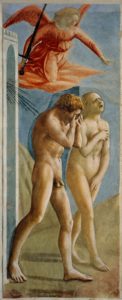In a paper written back in 2002, Revd Chris MacKenna – priest and Jungian analyst – looked at the resonances between the Judaeo-Christian faith and the modern discipline of psychodynamic therapy and counselling. He wasn’t suggesting that either of them could be collapsed into the other, but rather that both put us in touch with a deep vein of human experience. Both are about spirituality and inner work, and both in tune with a very ancient tradition of pastoral care. The paper called ‘Counselling as Spirituality’ offers ideas which I have taken to reflect on.
Psychodynamic therapy and counselling emerged from the parentage of Sigmund Freud and Carl Jung: both imbued their work with their highly developed attitudes to life which (and despite Freud’s rejection of religious belief) reflect the spirit of each man. Such manifestations of the spirit as a force that animates, was then bequeathed to their respective disciples and movements. Psychodynamic work which is not particularly affiliated to either the Freudian or Jungian school of thought, does not come with a ready-made spiritual ‘spin’, but there are core values and processes which resonate with elements of Judaeo-Christian faith.
One of these is the value which is attached to the individual. The current trend – fostered by economics and demands for outcome analysis – is for short-term work and this is shown in the pushing of CBT (cognitive behavioural therapy) or CAT (cognitive analytic therapy) and various forms of brief psychotherapy. Traditionally psychodynamic work offers an open-ended approach. I often worked with people for ten or twelve years and often 2-3 times a week, and both my own analyses lasted into double figures. So that’s hundreds and sometimes thousands of hours working with an individual, or being worked on. This value may be easily critiqued in all sorts of way (time, cost, access, privilege etc.), but it surely resonates with the Judaeo-Christian tradition which claims that human beings are of almost infinite value because each is made in the image of God.
Another central value of working psychodynamically is that there is a tragic sense that something has gone wrong, there has been a dislocation in a key relationship and often very early in life – perhaps through birth trauma, or the attitude of a parent or some disruption in the home environment. So, there is a belief in developmental theory – the past does affect the present, and with the understanding that one will need to work through it before we can be free to move forward. This can be linked – however unconsciously – by the mythology attached to the idea of the fall. Once life was harmonious then there was catastrophic dislocation, and in the story of Adam and Eve serious trouble began. The belief that early catastrophe disturbs us, our relationships with other and with God is present and leaves a sense that life hasn’t realized its full potential.
